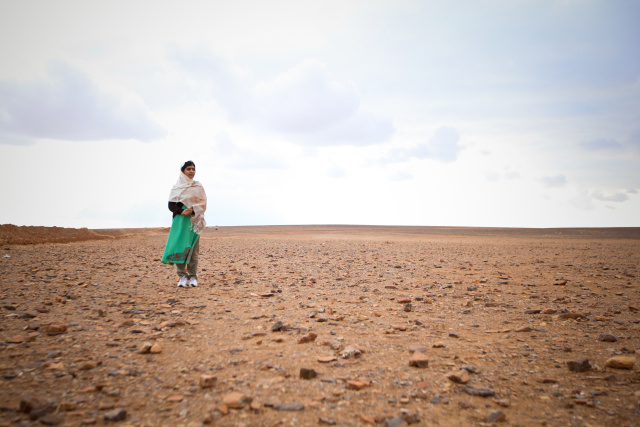
At the age of 15, Pakistani student Malala Yousafzai survived an assassination attempt by the Taliban. Not a random school bombing, or scattered gunfire in the dirt streets of her native Swat Valley. Instead, a man boarded her school bus, asked for her by name and shot her in the head.
Why?
Because she voiced the controversial opinion that girls should be allowed to go to school.
Director Davis Guggenheim’s He Named Me Malala (opening in wide release Friday) is part teenage biopic, part humanitarian advertisement. The film documents Malala’s feminist struggle and the girl behind the movement. For the uninitiated, the film gives a cursory overview of the Taliban’s control over the state of education in Malala’s particular region of Pakistan in beautifully animated, yet dramaless, sequences. Ultimately, these sequences, attempting to canonize a teenager we see scrolling through images of her athletic crushes (hello, Roger Federer), fail to transcend Malala’s real-life appeal. There’s no need for a cartoon fable when the real thing is more compelling.
In many ways, the globalization of Malala’s cause, what makes her a voice for education rights everywhere, makes her an impersonal documentary subject. When Malala won the Nobel Peace Prize in 2014, her speech focused on her status as a symbol. A spokeswoman for every girl deprived of education. It’s immediately apparent that the mission and the activism are important, but the snippets we get of Malala’s home life transcend the campaign. She arm-wrestles her brother, reads the autograph that she wrote inside the cover of her copy of her memoir (“Dear Malala, keep up the good work! Love, Malala”), and self-consciously shows off her sub-par test grades.
These segments personalize a struggle that can feel self-evident to the privileged. Of course girls need rights. Of course they should learn to read more than the Quran. Inundated with tales of the extraordinary, the consequences behind speaking out can feel muted. This is where the film shines. We see Malala admit to slapping around her little brother with a lopsided grin, play cards with her always-smiling father and still-adjusting conservative mother. We wonder about her relationships with her parents, the optimistic activism of her father and the unexplored culture shock of her mother’s burgeoning literacy. As normal a life as you could hope for an international activist.
Then we see the physical therapy. The recovery. The blood-spattered bus. The smile that was not yet lopsided, fated to slope when a damaged facial nerve failed to respond to a brain pierced with shards of shattered skull.
Here are the consequences of speaking out. It grounds you in your privilege, something the rest of the film loses when it globalizes its campaign to the point of anonymity. When women in other countries are shot for trying to learn and threatened trying to receive healthcare from Planned Parenthood in this country, those of us that don’t have to worry about such concerns, and have never had to worry, should be shell-shocked. The Taliban bombed over a hundred girls’ schools before shooting Malala. Destroying the institution is always the first response.
The film assumes if you’re watching that, yes, you believe that girls deserve education. I bet most people believe that women should receive reproductive health services. Where He Named Me Malala succeeds isn’t in the fluffy faux-deification of its subject, but the normalizing and personalizing of the feminist struggle.
It’s not a fairy tale, it’s a fight. And it’s not just against the Taliban.
He Named Me Malala (PG-13) opens Friday at the Quail Springs Mall AMC. You can donate to her fund and help empower girls around the world at her website.






















